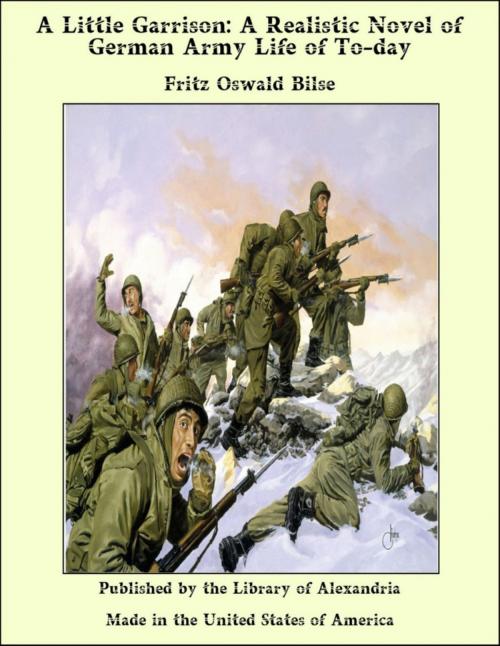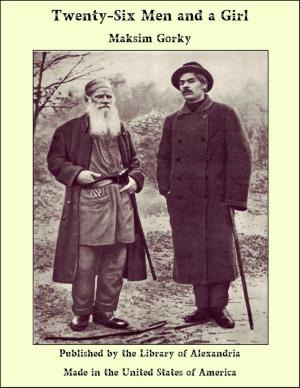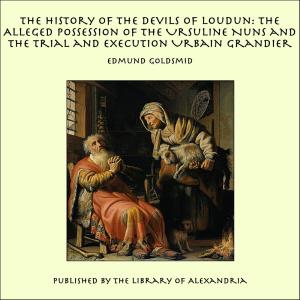A Little Garrison: A Realistic Novel of German Army Life of To-day
Nonfiction, Religion & Spirituality, New Age, History, Fiction & Literature| Author: | Fritz Oswald Bilse | ISBN: | 9781465593085 |
| Publisher: | Library of Alexandria | Publication: | March 8, 2015 |
| Imprint: | Language: | English |
| Author: | Fritz Oswald Bilse |
| ISBN: | 9781465593085 |
| Publisher: | Library of Alexandria |
| Publication: | March 8, 2015 |
| Imprint: | |
| Language: | English |
In his book, Le Débâcle, Zola shows in a vivid and intelligible manner the downfall of Napoleon III. and his army, and paints in his usual matter-of-fact tints the actual condition of the great host led forth to destruction. He makes us read in the soul of the common French soldier and in that of his commanding officer. The keen analysis of the characters he portrays enables us humanly to understand the catastrophe on the plains of Sedan. The whole Second Empire undermined by corruption; the army, head and front, honeycombed with loose morals, favoritism, and boundless conceit,—we begin to perceive the main reasons underlying the utter defeat of a gallant nation. And this all the more when, side by side with the sombre painting of Zola, we read the God-fearing letters written home from the reeking battlefields by William I. and his Iron Chancellor. Indeed, when the conquering German legions returned, in the spring of 1871, to their own firesides, they presented a body of men of whom any nation might have been proud. Elated they were at their unparalleled successes, but not puffed-up or vainglorious. A generation has passed since then. Is the German army of to-day still of the same metal? Does it, as a body, still show the same sterling qualities which led it to victory after victory on the soil of France? Alas, no. On that point the best and clearest minds in Germany itself are agreed. Foreign military leaders who have had opportunity to watch the German soldier of to-day at play and at work, have sent home reports to their respective governments, saying: “These are not the men that won in 1870!”A couple of years ago several American officers of high rank, fresh from the Philippines, witnessed the great autumn manœuvres of the German army, conducted under the supreme command of William II. One of them, after viewing in stark amazement the senseless attacks of whole cavalry divisions up steep declivities or down slippery embankments, exposed all the while to a withering fire from the rifles of infantry masses, said to the present writer: “If this were actual war, not a horse or man would be left alive!”
In his book, Le Débâcle, Zola shows in a vivid and intelligible manner the downfall of Napoleon III. and his army, and paints in his usual matter-of-fact tints the actual condition of the great host led forth to destruction. He makes us read in the soul of the common French soldier and in that of his commanding officer. The keen analysis of the characters he portrays enables us humanly to understand the catastrophe on the plains of Sedan. The whole Second Empire undermined by corruption; the army, head and front, honeycombed with loose morals, favoritism, and boundless conceit,—we begin to perceive the main reasons underlying the utter defeat of a gallant nation. And this all the more when, side by side with the sombre painting of Zola, we read the God-fearing letters written home from the reeking battlefields by William I. and his Iron Chancellor. Indeed, when the conquering German legions returned, in the spring of 1871, to their own firesides, they presented a body of men of whom any nation might have been proud. Elated they were at their unparalleled successes, but not puffed-up or vainglorious. A generation has passed since then. Is the German army of to-day still of the same metal? Does it, as a body, still show the same sterling qualities which led it to victory after victory on the soil of France? Alas, no. On that point the best and clearest minds in Germany itself are agreed. Foreign military leaders who have had opportunity to watch the German soldier of to-day at play and at work, have sent home reports to their respective governments, saying: “These are not the men that won in 1870!”A couple of years ago several American officers of high rank, fresh from the Philippines, witnessed the great autumn manœuvres of the German army, conducted under the supreme command of William II. One of them, after viewing in stark amazement the senseless attacks of whole cavalry divisions up steep declivities or down slippery embankments, exposed all the while to a withering fire from the rifles of infantry masses, said to the present writer: “If this were actual war, not a horse or man would be left alive!”















